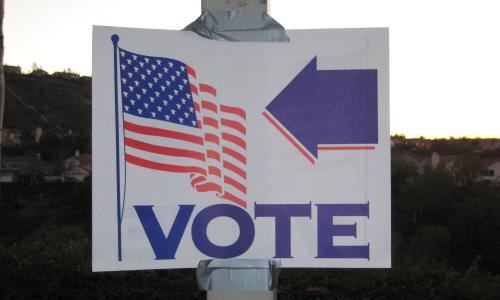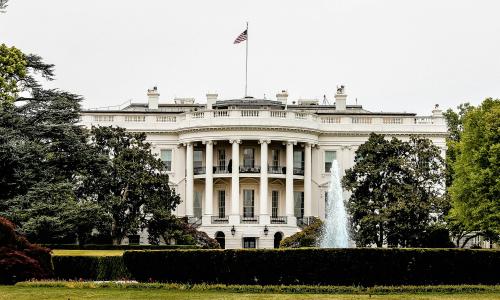UCS’s Center for Science and Democracy (CSD) is convening a group of topical experts with the goal of channeling their knowledge, skills and standing as a resource to leading advocates and policymakers at the the frontlines of voting rights and democracy reform.
This initiative is grounded in CSD’s core belief that the role of science—and the voice of the nation’s diverse scientific community—can serve as a strong partner in the movement for voting rights and a democracy reform that truly represents and is accountable to the people.
The council members include:
Adrienne Jones, Assistant Professor of Political Science at Morehouse College and Director of the Pre-Law Program
Dr. Jones holds a Ph.D. in Political Science from the City University of New York Graduate Center, and a J.D. from the University of California, Berkeley. Her research focuses on the history and politics of black Americans and on public policy issues related to the black experience. Her doctoral dissertation, The Voting Rights Act Under Siege: The Development of the Influence of Colorblind Conservatism on the Federal Government and the Voting Rights Act of 1965, is currently being excerpted for journal publication. Her first article, When Yes Means No: GOP Congressional Strategy and the Reauthorization of the VRA in 2006, is published in the July 2018 edition of The Forum. Her second article, about the U.S. presidential, “counter-enforcement,” of the VRA has been accepted for publication by the Political Science Quarterly, and she is currently at work on an article that focuses on the Supreme Court and the development of the VRA jurisprudence.
During the 2019 primary election season, Dr. Jones interviewed Presidential candidate Mayor Pete Buttigieg. Dr. Jones is an expert witness on issues of voter suppression and U.S. voting history and regularly speaks about voting rights and suppression with national and international news outlets. Jones’ expertise provides a unique perspective to discussions about the VRA, voting, black politics, history, and public policy.
Andrea Benjamin, Associate Professor in the Clara Luper Department of African & African American Studies at the University of Oklahoma
Dr. Andrea Benjamin is an Associate Professor in the Clara Luper Department of African and African American Studies at the University of Oklahoma. She earned her undergraduate degree in African American and African Studies and Political Science at the University of California, Davis in 2001. She earned her Masters and Ph.D. in Political Science from the University of Michigan in 2010. Her research interests include race and politics, local elections and voting behavior, and public opinion. Her first book, Racial Coalition Building in Local Elections: Elite Cues and Cross-Ethnic Voting, explores the potential for Black and Latino Coalitions. Using the Co-Ethnic Elite Cues Theory, the book shows that Blacks and Latinos rely on endorsements from co-ethnic leaders when casting their ballots. This is especially true when race and ethnicity are salient in the campaign.
Dr. Benjamin is currently working on a project about coalitions, electoral representation, and policy representation in local politics. She lives in Oklahoma City and currently serves on the Boards of Sally’s List and North East Oklahoma City Renaissance. She is also a co-chair of the Human Rights Commission Task Force in Oklahoma City.
Hannah Walker, assistant professor of Government at the University of Texas at Austin
Dr. Hannah Walker’s research concerns racial and ethnic politics, political participation and institutional barriers to the franchise in the American context. Her award winning book, Mobilized by Injustice (Oxford University Press, 2020), examines the impact of experiences with the criminal justice system on political attitudes and behaviors, taking care to compare and contrast the experiences of white, Black and Latinx Americans. Her research has been published in the Journal of Politics, Perspectives on Politics, and Political Behavior, among other outlets.
In addition to her scholarly work, she has served as or assisted in expert witness work in numerous cases challenging restrictive voting laws across the states. Previously, she served as an assistant professor of Political Science and Criminal Justice at Rutgers University (2017-2020), and a postdoctoral fellow with the Prisons and Justice Initiative at Georgetown University (2016-2017). She received her PhD in 2016 from the University of Washington.
Jean Schroedel, professor of politics and policy at Claremont Graduate University
Dr. Schroedel has written or co-edited six books, including Is the Fetus Person? A Comparison of Policies Across the Fifty States that was given the APSA’s Victoria Schuck Book Award, as well as more than 50 scholarly articles. In 2017, she was awarded the Claremont Colleges Diversity in Teaching Award.
Her recent research has focused on voting rights issues affecting Native Americans. Schroedel was an expert witness in the Wandering Medicine v. McCulloch and Yazzie v. Hobbs cases and did research that was used in the Poor Bear v. Jackson County and Sanchez v. Cegavske cases. Her most recent book, Voting in Indian Country: The View from the Trenches, which has just been published, is an outgrowth of this research.
Michael Latner, professor of political science and public policy at California Polytechnic State University and Kendall Voting Rights Fellow with the Center for Science and Democracy at UCS
His research focuses on political representation and electoral systems, including redistricting and gerrymandering in the US, and the impact of electoral administrative law on political participation. In his role, Dr. Latner will work to bring public attention to robust scientific measures of integrity and bias in US electoral institutions, and the impact of electoral bias on public health, environmental, and related safety policies and outcomes.
Dr. Latner earned a Ph.D. in political science from the University of California, Irvine, and a B.A. in political science and government from California State University, Chico. He has published extensively on election-related issues in the academic and popular press, and co-authored articles for The Guardian and The Washington Post.




